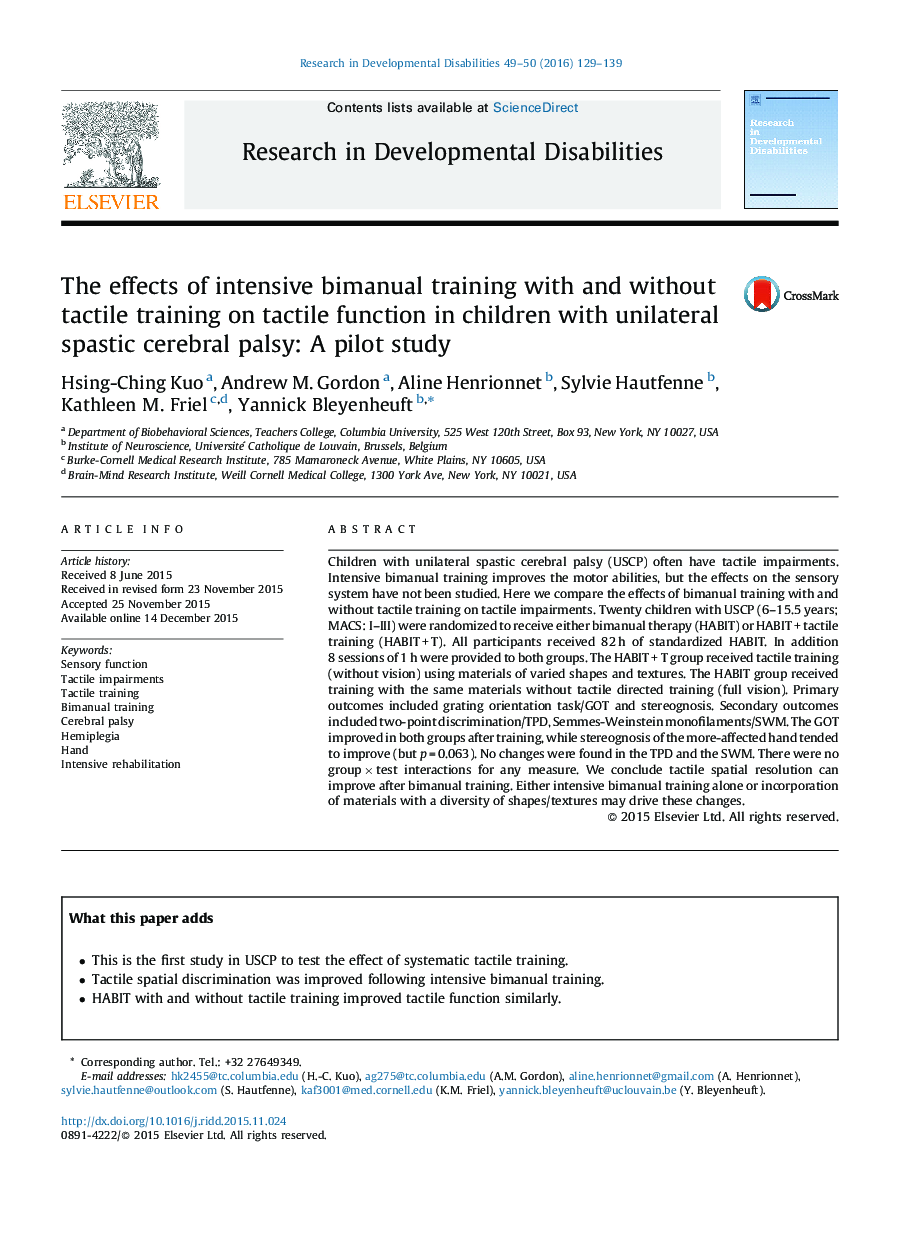| کد مقاله | کد نشریه | سال انتشار | مقاله انگلیسی | نسخه تمام متن |
|---|---|---|---|---|
| 371050 | 621895 | 2016 | 11 صفحه PDF | دانلود رایگان |
Children with unilateral spastic cerebral palsy (USCP) often have tactile impairments. Intensive bimanual training improves the motor abilities, but the effects on the sensory system have not been studied. Here we compare the effects of bimanual training with and without tactile training on tactile impairments. Twenty children with USCP (6–15.5 years; MACS: I–III) were randomized to receive either bimanual therapy (HABIT) or HABIT + tactile training (HABIT + T). All participants received 82 h of standardized HABIT. In addition 8 sessions of 1 h were provided to both groups. The HABIT + T group received tactile training (without vision) using materials of varied shapes and textures. The HABIT group received training with the same materials without tactile directed training (full vision). Primary outcomes included grating orientation task/GOT and stereognosis. Secondary outcomes included two-point discrimination/TPD, Semmes-Weinstein monofilaments/SWM. The GOT improved in both groups after training, while stereognosis of the more-affected hand tended to improve (but p = 0.063). No changes were found in the TPD and the SWM. There were no group × test interactions for any measure. We conclude tactile spatial resolution can improve after bimanual training. Either intensive bimanual training alone or incorporation of materials with a diversity of shapes/textures may drive these changes.
Journal: Research in Developmental Disabilities - Volumes 49–50, February–March 2016, Pages 129–139
